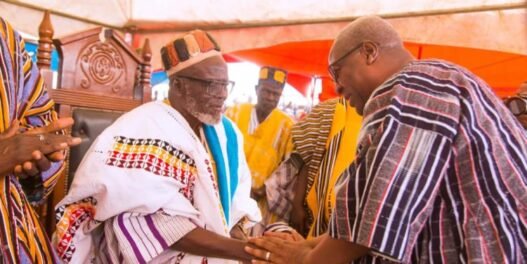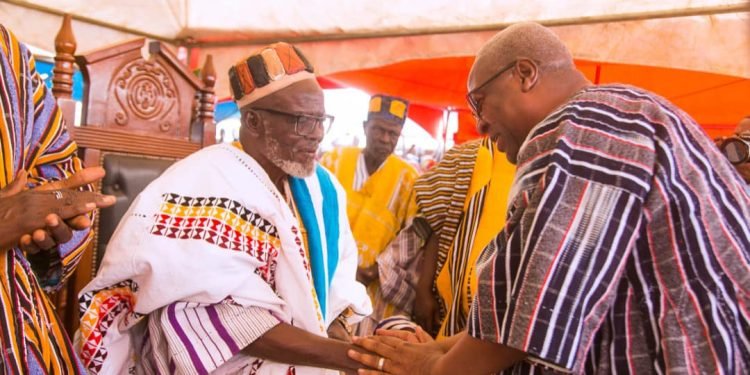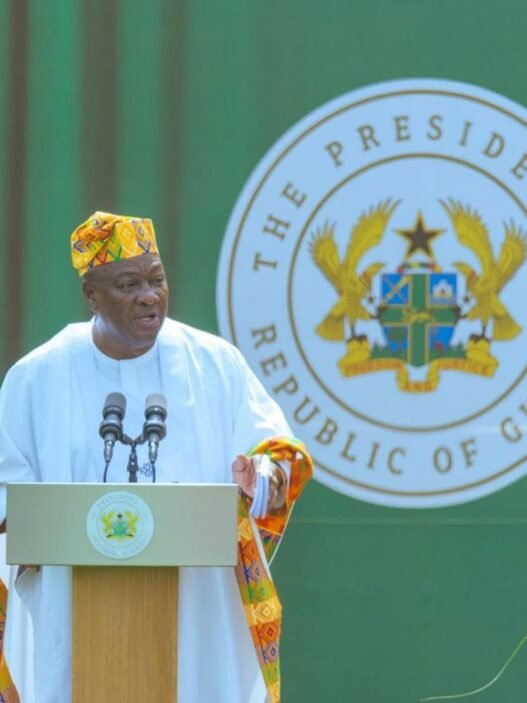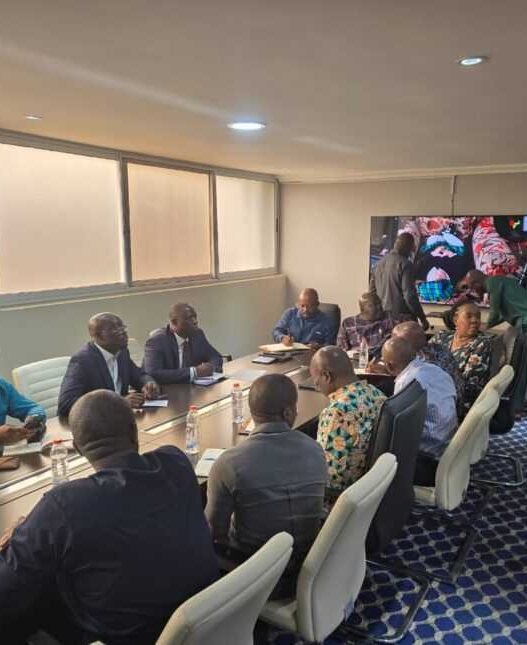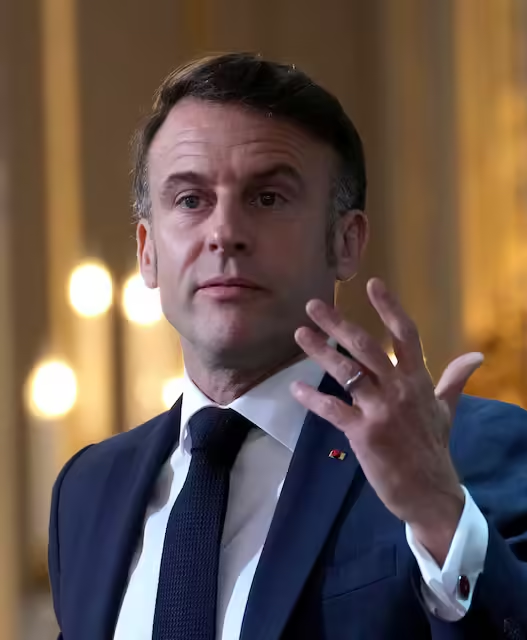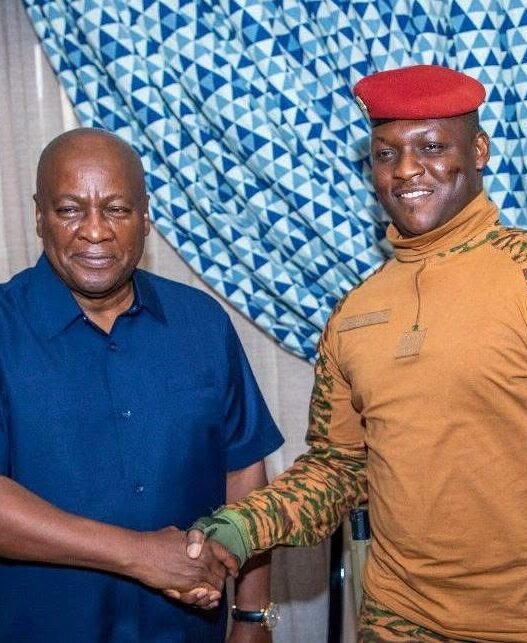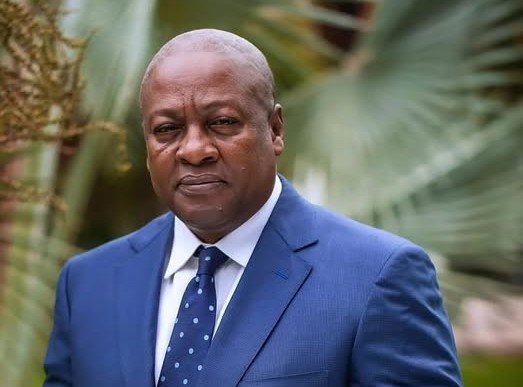In August 2024, during his tenure as the National Democratic Congress (NDC) flagbearer, now-President John Dramani Mahama made headlines with his consideration of creating a new region from the Upper East Region. This move was part of his broader agenda to enhance development, strengthen governance, and foster peace in the region.
Dialogue with the Bawku Naba
At a significant meeting held at the Bawku Naba’s palace during his nationwide campaign tour, Mahama pledged to prioritize peace and development in Bawku, an area historically plagued by ethnic tensions and insecurity. Addressing the chiefs and elders, Mahama asserted:
“Our first priority is to bring back peace to Bawku, because without peace, there can be no progress.”
He further outlined his vision to explore the creation of a new region as a tool to accelerate development:
“Our other priority is to focus on creating a new region to help with development.”
This statement not only highlighted Mahama’s commitment to addressing local governance issues but also demonstrated his willingness to engage with constitutional processes to actualize this goal.
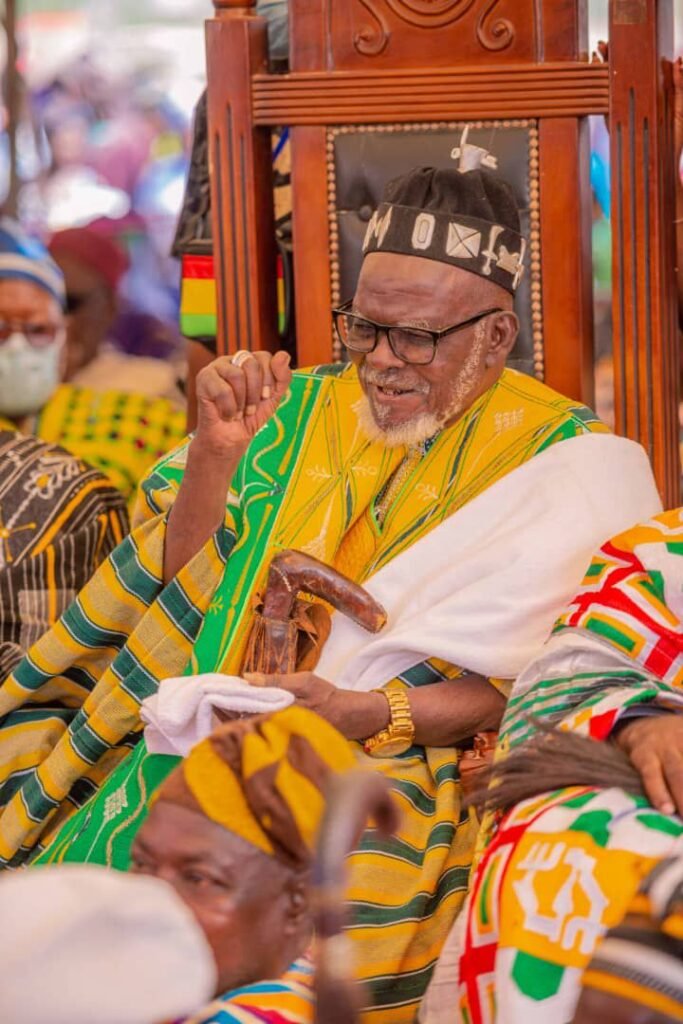
Constitutional Requirements and Local Advocacy
President Mahama acknowledged the procedural and legal frameworks necessary for creating a new region. He referred to a petition submitted to the Speaker of Parliament by the local Member of Parliament, signaling that the issue had already gained traction among stakeholders.
The creation of a new region requires a series of constitutional steps, including:
- The President receiving a petition for the creation of a new region.
- Referring the petition to the Council of State for advice.
- Setting up a Commission of Inquiry to determine the feasibility of the proposal.
- Conducting a referendum in the affected areas, with at least 50% voter turnout and 80% voting in favor.
Focus on Peace and Development
Mahama’s dialogue with the Bawku Naba also emphasized the importance of restoring peace as a foundation for sustainable development. Bawku, a region that has experienced prolonged conflict, remains a focal point for any administration aiming to foster stability and growth.
Stakeholder Engagement
The former President’s remarks highlighted his strategy of engaging local stakeholders, including traditional authorities, as partners in governance. Mahama’s campaign visit to the Upper East Region included several similar meetings where he shared his policy vision for the region, building momentum for his eventual election victory in December 2024.
The Way Forward
With John Mahama now in office as President, the pledge to explore the creation of a new region in the Upper East takes on renewed significance. This proposal, if pursued, has the potential to address governance challenges, improve resource allocation, and bring government closer to the people. However, it also requires careful planning, extensive consultation, and adherence to constitutional procedures to ensure broad-based support and sustainability.
The Upper East Region and its people will keenly watch how this pledge evolves into tangible action in the years ahead. For President Mahama, delivering on this promise could cement his legacy as a leader who brought peace, stability, and transformative development to one of Ghana’s most historically underserved regions.









